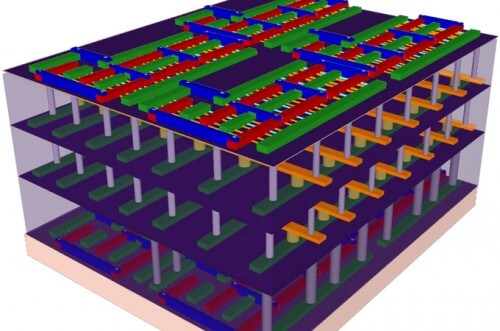One of the fields of technology that is developing at the fastest pace is the field of electrical engineering, which forms the basis for all those gadgets, smart phones, tablet devices, etc. that we all use on a daily basis

One of the fields of technology that is developing at the fastest pace is the field of electrical engineering, which is the basis for all those gadgets, smart phones, tablet devices, etc. that we all use on a daily basis. In the next few lines we will talk about the great news of the last few years in this field, and how these have affected and will affect the lives of all of us. So if you too can't spend two hours without some technology for the soul, stay with us...
It's best to be small
Each of us with white hair on our heads remembers the first cell phones that arrived in Israel somewhere in the 90's and especially their enormous size. Twenty or so years later, and the technological world has never seemed smaller. The main smartphone market these days includes extremely small (4-5 inch for most models) and lightweight phones. The flowers should be sent to experts Electrical Engineering, who managed to revolutionize the field of semiconductors. Without boring you with the technical details, we will tell you that the basis of the operation of the technological devices lies in the ability to produce smaller silicon components with greater efficiency and precision. In the last decade, electrical engineers have succeeded in stimulating the transport of much more information with slightly more material, thus improving the performance of the devices while reducing their physical size. Oh well, at least we spared you terms like "arousal" and "Iloh"...
Fast and Furious
The name of the game in the world of smartphones in particular and communication technology in general is speed. Everyone is trying to be the fastest, everyone boasts of market-breaking speed. So how did the big change take place, where electronic devices became several times faster than those of previous years? Well, this is a new method of working in the field of data processing, based on the simultaneous processing of several processors together, as opposed to the pattern that was accepted in the past - the work of a single processor. Such a processor, however fast it may be, will forever run slower than several processors running continuously and without interruption. The method began to develop in the previous decade, the many experiments carried out with it were crowned with success and today, there is no mobile phone manufacturer that does not operate with this method, allowing us to surf more smoothly and faster. So now, when you find out that your phone has 8 cores, think about how the user experience would be if we continued with the one-computer-one-processor line of thought.
for a longer life
One of the stumbling blocks of today's cellular devices is the whole issue of the battery, which, with reasonable use, drains at an extremely fast rate. The solutions born so far - the production of portable chargers and backup batteries - imply an inability to solve the problem itself, and contentment with external elements. But the situation is not lost, and in the future, as the engineering and chemistry experts predict, the battery will last tens of percent longer than today (when there are several models that already show improved performance). The reason for the change for the worse compared to the devices of the past that would last three days without charging lies in today's "heavy" and battery-hungry uses compared to the past, but as mentioned, the solutions are on the horizon, and it's only a matter of time.
So trust the world's engineers and international experts - the technological world will continue to change and improve in the future as well.
* This article is marketing content on behalf of the advertisers and under their responsibility.
